Moving to Vienna, Austria
Welcome to Vienna: Where Imperial Elegance Meets Cutting-Edge Innovation!
Vienna, the capital of Austria, is where old-world charm meets innovation. With its imperial architecture, vibrant cultural scene, and a dynamic tech ecosystem, the city balances tradition and modernity like few others.
Economically, Vienna is Austria’s powerhouse, contributing about 25% of the national GDP despite housing only ~22% of the population. It is home to a thriving ICT sector with ~6,200 companies and 64,000 employees in the city, and about 8,900 ICT firms in the wider region. This is supported by strong research institutions, incubators like INiTS, and the Vienna Business Agency, which funds and mentors startups.
Vienna also regularly appears at the very top of global livability rankings (Mercer placed it #2 worldwide in 2024), thanks to its safety, efficient public transport, clean air, and affordable housing compared to other major capitals. The city’s social housing model ensures stable rents, making it much more accessible than London, Paris, or Amsterdam.
For diversity, Vienna stands out: as of 2024, 35% of residents are foreign nationals and nearly 45% have a migration background. English is widely spoken in professional settings, while German helps with cultural immersion.
With over 50% of the city covered in green space, and strong salaries in tech fields, Vienna offers professionals a balance of opportunity and quality of life that’s hard to match.
Lifestyle and Culture in Vienna
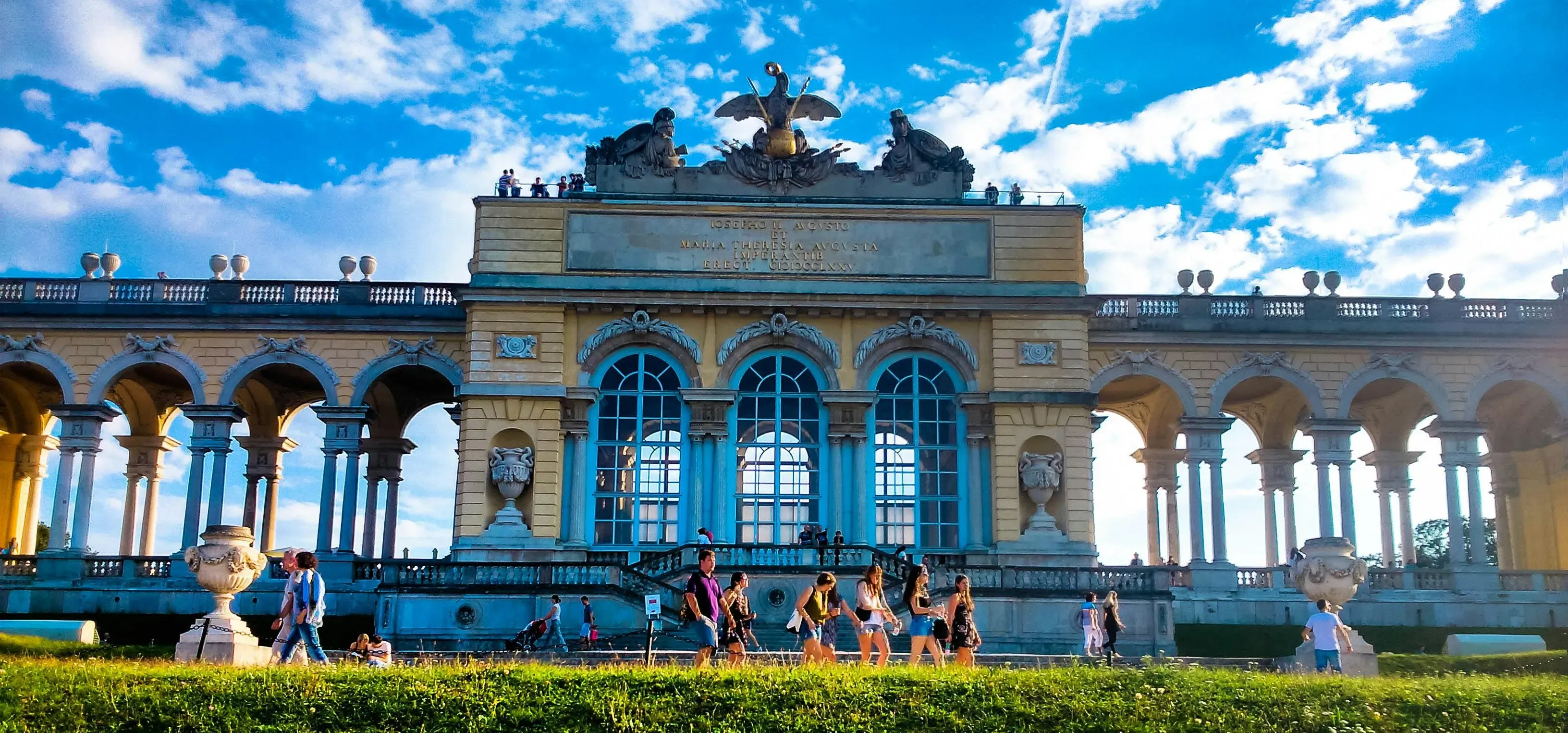
City Lifestyle
Vienna is renowned for a relaxed, “work to live” ethos where lingering over coffee or exploring a street market is built into daily life—rather than rushing toward the weekend. The city is consistently praised for being clean, safe, and extraordinarily well-organized. Many expats highlight the abundance of cultural offerings, from ice skating and film festivals to outdoor swimming and hiking, making it easy to find something meaningful to do year-round.
Cultural Highlights and Attractions
Vienna’s cultural life is a rich tapestry of classical elegance and contemporary innovation. The city is home to iconic landmarks such as the Hofburg Palace, St. Stephen’s Cathedral, and the historic Innere Stadt (First District), all echoing centuries of history and artistic achievement.
Vienna’s acclaimed coffeehouse culture is UNESCO-recognized as intangible cultural heritage, a tradition where locals and visitors alike linger over a Melange or Einspänner. Alongside, the city’s Würstelstände (sausage stands) remain beloved street-food gathering spots that serve as informal meeting places for people from all walks of life.
Popular Neighborhoods
- Innere Stadt (1st District): The historic and cultural heart, filled with landmarks, upscale cafes, galleries, and the famed Ringstrasse.
- Leopoldstadt (2nd District), Landstraße (3rd), Wieden (4th): Ideal for young families and artists seeking neighborhoods with parks, markets, and cultural flair.
- Neubau, Mariahilf, Josefstadt (6th, 7th, 8th Districts): Popular with hip, creative types. These neighborhoods are vibrant with indie shops, cafés, and nightlife.
- Floridsdorf (21st District): Gaining prominence as an innovation hub, with research institutions, Siemens-City, AIT (Austrian Institute of Technology), and life sciences enterprises.
Social Life and Integration
Vienna’s rich cultural and social infrastructure supports community and integration. There’s a vibrant expat and social club scene, numerous meetups, and cultural events that foster connections across backgrounds.
That said, not everything is perfect. A few expats have noted a more reserved social demeanor among Viennese people, with occasional reports of difficulty feeling socially connected. Balancing this, the city's continued appeal—cleanliness, safety, culture—keeps drawing newcomers, crafting a uniquely layered and continuously evolving city experience.
Cost of Living in Vienna
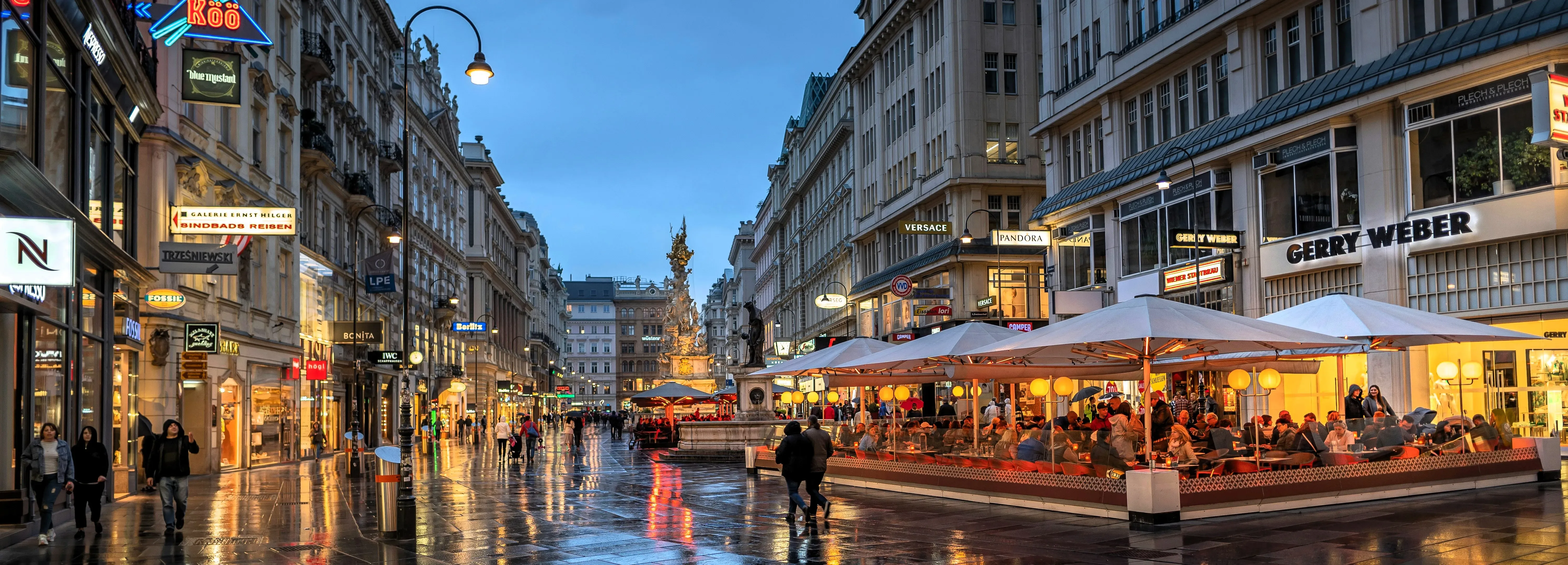
Breakdown of Major Expenses
Living in Vienna means enjoying high quality of life with costs that are competitive compared to many other European capitals. Here’s a closer look at everyday expenses according to Numbeo:
- General living expenses:
- A family of four needs approximately €3,809.40 per month (excluding rent).
- A single person spends about €1,090.70 per month (excluding rent).
- Housing:
- A one-bedroom apartment in the city center averages €1,132.66, while outside the center it drops to €796.69.
- For families, a three-bedroom apartment in the city center costs about €2,147.76, and around €1,444 outside the center.
- Buying property can be costly, with €9,826.09 per square meter in the center, and €5,924.88 per square meter outside.
- Utilities and Internet:
- Monthly utilities for an 85m² apartment average €276.52.
- High-speed internet with unlimited data costs around €34.77.
- Mobile phone plans are affordable at around €13.45 per month.
- Food and groceries:
- Milk (1L): €1.52
- Bread (500g): €2.68
- Eggs (12): €4.07
- Chicken fillets (1kg): €13.97
- Apples (1kg): €2.92
- Mid-range restaurant meal for two: €80.00
- Cappuccino: €4.51
- Transportation:
- A one-way public transport ticket costs €2.40.
- Monthly transport passes are very reasonable at €50.00.
- Gasoline averages €1.56 per liter.
- Leisure and childcare:
- Fitness club membership: €43.80 per month.
- Cinema ticket: €12.00.
- Preschool (private, monthly): €305.00.
- International school fees: €20,833.33 annually.
Comparison
Compared to other cities, Vienna is:
- 26.8% more expensive than Madrid in general living costs (excluding rent).
- However, rent is 13.2% lower in Vienna than in Madrid.
When placed alongside Western European hubs like Zurich, Paris, or London, Vienna stands out as more affordable in housing and public transport, while still offering a very high quality of life. Its relatively modest utility and childcare costs make it attractive for both young professionals and families.
Average Salaries in Tech
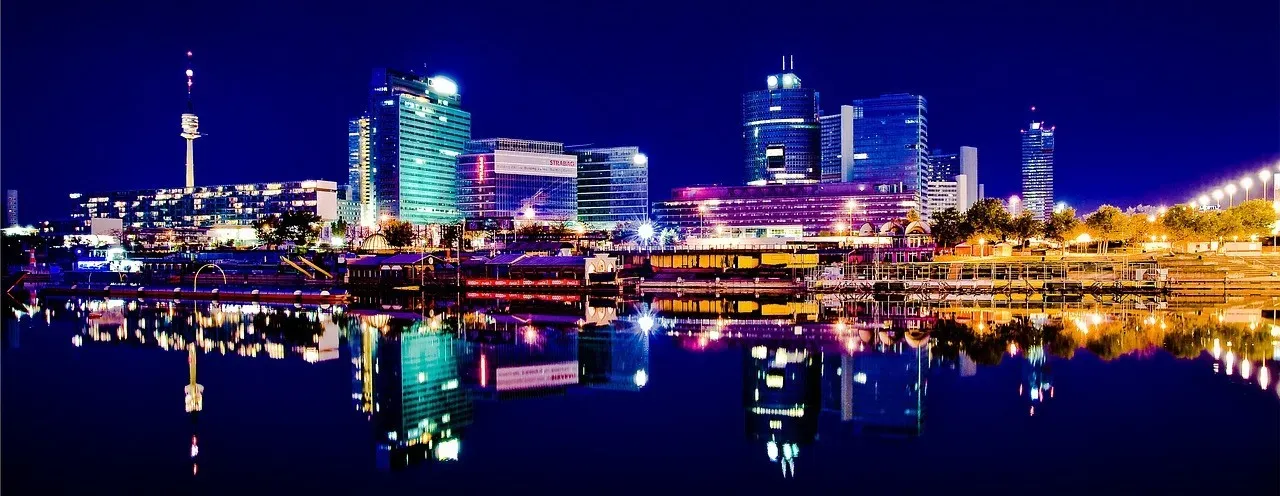
An Overview of Pay by Experience Level
Drawing from recent salary data specific to Vienna, here’s how compensation typically breaks down across entry-level, mid-level, and senior tech roles:
Entry-Level (e.g. Junior Software Engineer / Developer)
- Median total compensation: ~€40,700 per year, with the 25th to 75th percentile range at €36,100–€54,700.
- Other estimations show roughly €40,833 annually for entry-level positions in Vienna.
Mid-Level Software Engineer
- Average €64,000 per year, with a typical range between €54,370 (25th percentile) and €75,625 (75th percentile).
- Broader industry data reports a median total compensation of €65,836, with the interquartile range between €56,849 and €82,421.
Senior Software Engineer
- The average annual salary for senior roles is around €79,000, with most professionals earning between €67,650 and €88,250.
- Top earners can receive up to around €104,940 per year.
Comparison Across Levels
To break it down clearly:
- Entry-Level: ~€36,000–€55,000
- Mid-Level: ~€55,000–€83,000 (average around €65,000)
- Senior-Level: ~€68,000–€88,000 (with some exceeding €100,000)
These figures reflect annual base and total compensation, including bonuses and stock where applicable.
Context: How Vienna Stacks Up
- Compared to Austria as a whole, Vienna’s salaries are in line or slightly higher. Nationwide, software developers average around €57,000 (mean) and €61,000 (median) annually, with entry-level at €44,000 and senior roles up to €75,000.
- The tech industry overall in Vienna commands a median salary of ~€90,595, reflecting roles beyond just development—like data scientists, product managers, etc.
What This Means for You
- Entry-level professionals can expect a solid starting salary that aligns with Western European standards, especially for those bringing in-demand skills.
- Mid-level tech workers (3–7 years experience) can enjoy substantial growth, often reaching well into the upper €60–80k range.
- Senior developers and engineers can approach or exceed €90k, depending on specialization, company, and negotiation—especially in leading firms or fast-growing startups.
Family Friendliness

Overview of Family Services
Healthcare for Children
Austria offers exceptionally strong public healthcare. Children under 18 receive fully covered care as long as their parents are enrolled in an Austrian public health insurance fund, no extra fees or deductibles apply . The system is universally accessible, highly regarded, and designed for both efficiency and equity .
Childcare and Early Education
Vienna stands out for its excellent early childhood support:
- In Vienna, public kindergartens are free for ages 0–6 (meals extra). In the rest of Austria, only the final preschool year (age 5) is universally free. Parents only pay for optional meals or activities
- There is a means-tested childcare allowance, which may apply depending on income.
- For private or campus-based daycare, costs can be very low—for instance, four half-day sessions at the University of Vienna’s daycare cost just €124 per month.
- Additionally, parents may be eligible for per-diem childcare allowances—ranging from €17.65 to €41.14 depending on duration and income level.
Parental Support and Family Benefits
The Austrian system offers generous financial support for families:
- Family allowances, a family bonus tax deduction, single-parent or single-earner tax allowances, and a multiple children bonus all help lighten financial burdens.
- Reports from parents note that after subsidies and benefits, net childcare costs can be highly manageable.
Education Options
Families have strong schooling options:
- In addition to public schools, Vienna has well-regarded international schools, such as Vienna International School and Danube International School, offering IB programs and high-quality resources.
- Public schooling is extensive, with hundreds of primary, middle, and high schools across the city and a student body numbering in the hundreds of thousands.
Appealing Features for Families
Safety, Green Spaces, and Activities
Vienna ranks consistently as one of the most family-friendly cities in Europe:
- Studies highlight its ample parks, low crime rate, and wide range of children’s activities. In fact, Vienna was ranked the most family-friendly European city, thanks to affordable rents, plentiful recreational spaces, and high safety levels .
- It's also widely praised by expat communities for its healthcare quality, affordability, and welcoming environment.
Housing and Social Infrastructure
Vienna’s housing system is uniquely beneficial for families:
- The city maintains a vast social housing system, the largest in Europe, with over 200,000 municipal units. These offerings are rent-controlled, affordable, and often of high quality.
- With strong tenant protections and widespread access (80% of residents are renters), families can find stable and secure housing without excessive costs.
Summary: Family-Friendly Highlights
- Healthcare: Universally covered for children; trusted and accessible system.
- Childcare & Schools: Free public kindergarten, cost-effective alternatives, and strong private options.
- Financial Support: Tax benefits and allowances significantly offset childcare and education costs.
- Quality of Life: A safe city filled with parks, activities, and cultural opportunities for families.
- Housing: Affordable and stable rental options supported by longstanding social housing policies.
Relocation Resources
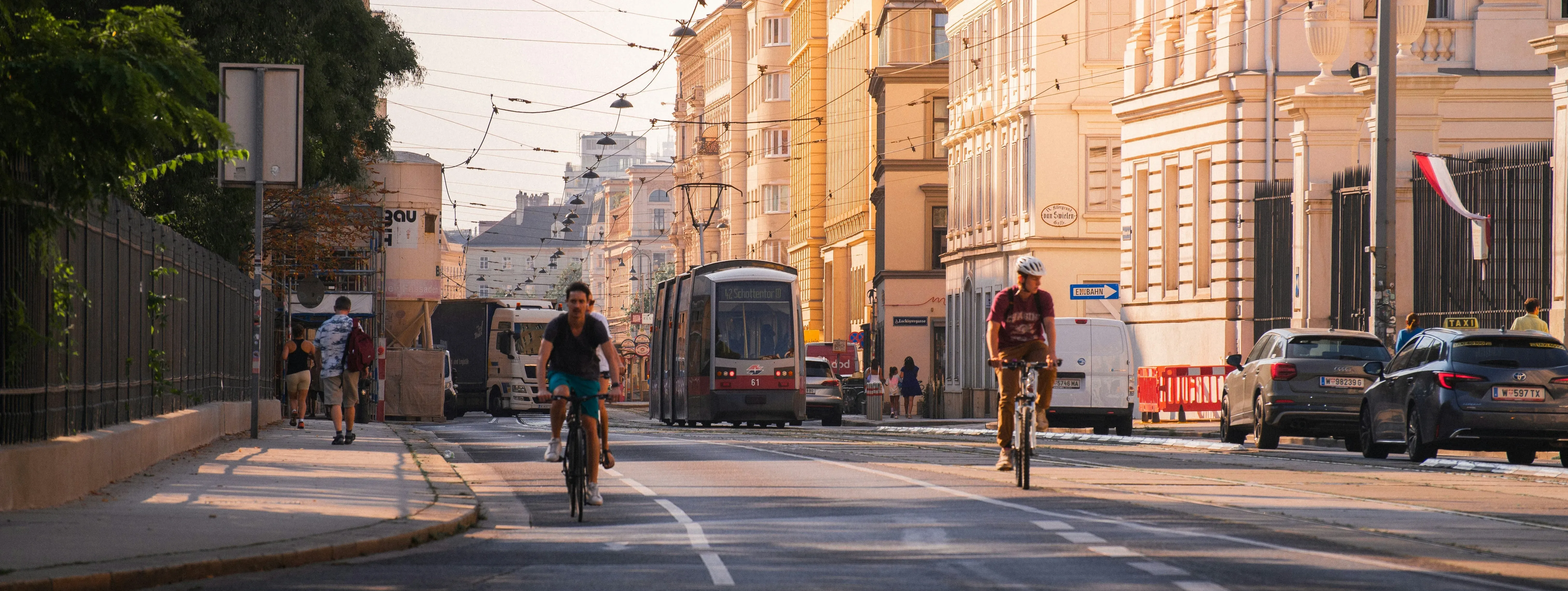
Moving to Vienna becomes a lot smoother when you know where to look for housing and which relocation agencies can guide you through the process. Below is a curated list of trusted services, covering both short-term and long-term rentals, as well as professional relocation support.
Housing and Rental Services
Short-Term Rentals (ideal for first arrivals or trial stays):
- Wunderflats – Specializes in fully furnished apartments for stays starting from one month. Offers a wide selection, from cozy studios near Vienna’s main train station (€1,800/month to luxury penthouses €2,400/month).
- Cozycozy – A comprehensive search platform that aggregates Vienna’s short-term rentals, including furnished apartments, studios, and weekly options.
- Booking.com – Offers verified short-term apartments with guest ratings. Many include free Wi-Fi and terraces, making it convenient for digital nomads and families alike.
- Kurzzeitmiete.at – A local Austrian platform focused on short-term furnished rentals in Vienna. Ideal for stays ranging from weeks to a few months.
- Blueground – Known for flexible stays starting at 30 days. Perfect for professionals who want to “test drive” neighborhoods before committing long term.
Long-Term Rentals (for settling in):
- HousingAnywhere – A well-known platform for international tenants, offering apartments and rooms for six months or longer. Prices range from ~€400 to €4,000 depending on location and size.
- LongTermLettings – Focuses on furnished apartments and houses available for extended stays.
- Spotahome – Verified listings with photos and videos, offering peace of mind for newcomers. Ideal for students, young professionals, and families seeking mid- to long-term rentals.
- Vrbo – While better known for vacation rentals, many hosts offer discounts for stays longer than a month, making it an alternative for temporary housing before finding a permanent place.
Relocation Agencies
For those who want extra support with everything from visas to school enrollment, Vienna has reputable relocation agencies:
- Dr. Krauss Relocation Services – A highly personal service focused on saving clients time and money. They assist with apartment searches, registrations, and day-to-day settling in.
- Step Vienna – Provides tailor-made relocation packages. Their services cover everything from legal paperwork to long-term home searches.
- E.R.A. Executive Relocations Austria – Combines expatriate and local expertise to ensure smooth moves for professionals, including cultural adaptation support.
- Recom Relocation – Works with both companies and private clients, offering services such as lease negotiation and school placement.
- Randos Relocation – Specialists in corporate and private relocations, offering discreet and full-process solutions from paperwork to local orientation.
Job Market and Taxes
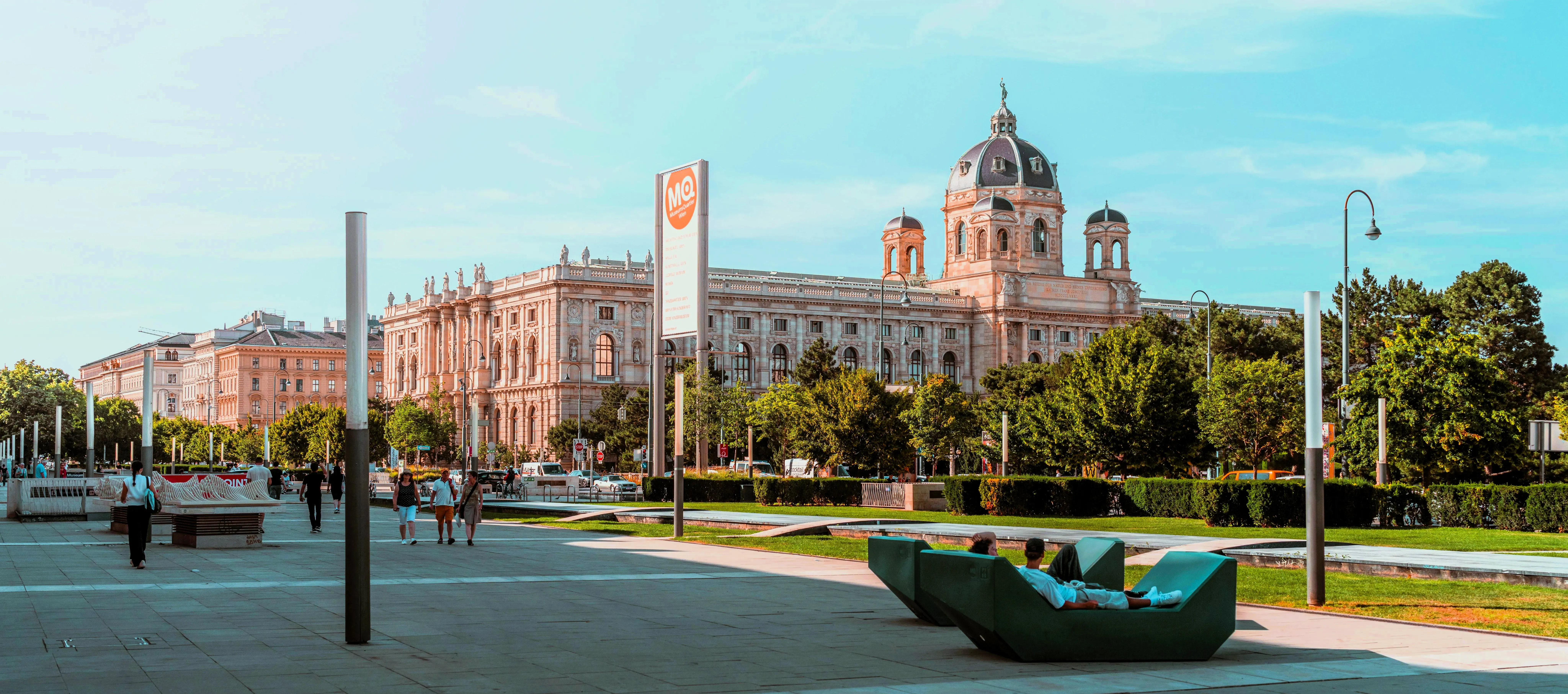
Current Job Openings in Vienna’s Tech Sector
Vienna has become one of Europe’s most dynamic innovation hubs, thanks to a strong presence of startups, research institutes, and global corporations. Sectors driving the tech economy include ICT, life sciences, mobility, and green technologies.
If you’re considering a move to Vienna and want to explore career opportunities, you can browse the latest tech job openings through TieTalent’s job portal.
Vienna is particularly strong in:
- Software Development & Engineering – from full-stack to embedded systems.
- Data Science & AI – supported by research centers and universities.
- Cybersecurity & FinTech – growing demand due to Austria’s position in the EU regulatory landscape.
- GreenTech & Smart City Solutions – aligned with Vienna’s sustainability goals.
Income Tax Overview in Austria
If you’re relocating to Vienna for work, understanding Austria’s tax system is essential. Austria uses a progressive income tax model, meaning the more you earn, the higher the rate applied to that portion of your income.
As of 2024, here are the main income tax brackets in Austria:
- 0% on annual income up to €13,308
- 20% on income between €13,309–€21,617
- 30% on income between €21,618–€35,836
- 41% on income between €35,837–€69,166
- 48% on income between €69,167–€103,072
- 50% on income between €103,073–€1,000,000
- 55% on income over €1,000,000
Special Payments: 13th and 14th salaries are taxed at preferential rates, with the first €620 tax-free.
Social Security: Employees contribute ~18% of salary up to a ceiling of €6,450/month (2025). This covers healthcare, pension, unemployment, and other benefits.
Double Taxation: Austria has treaties with many countries to prevent double taxation.
Why This Matters for Expats
- Predictable costs: With clear tax brackets, professionals can plan finances effectively.
- High quality of services: While Austria’s tax rates may seem steep compared to some countries, they fund world-class healthcare, education, public transport, and social benefits—making Vienna a particularly attractive place for families.
- Double taxation treaties: Austria has agreements with many countries, ensuring that expats don’t pay tax twice on the same income.
TieTalent: Where Teams Are Formed. Join for Free!